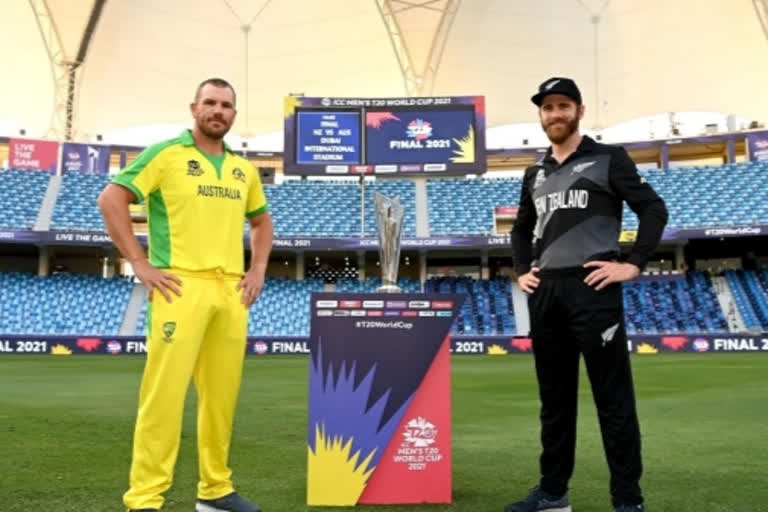New Delhi: The announcement of the T20 World Cup schedules and format to be held in Australia in October/November 2022 requires a radical change.
Maybe it is late to do so, but the ICC have to seriously look into it as well as into their other upcoming World cricket tournaments, to make them more competitive amongst the teams that count.
The format announced has been finalised with 16 teams in the fray to finally settle on 12. The T20 WC 2021 tournament has clearly indicated that the minnow sides are still way below the qualifying mark at present to compete against the top cricket teams. Although, one understands the importance of spreading cricket far and wide, the matches turn out to be a complete farce. This may extend the tenure of the tournament, but it significantly reduces the quality of it.
The formation of two groups and then for the two top teams of the groups to qualify is a concept that is ancient. This was a format when cricket World Cup ties came into existence -- one that was followed in 1975 and in 1979. It was in the World Cup of 1983 when ICC realised their folly and teams although grouped, played each other twice.
This gave teams a chance to recover even if they had lost a match. India may not have qualified to win the World Cup, if the earlier format had been followed.
The ICC seems confused about their approach. On one hand they are trying to increase participation, while on the other hand they seem to be in a hurry to complete their tournaments in what one can term as "to tick the box".
The World Test Championship was a good example of it. How can one recognise a true winner if all the top Test-playing sides have not played against each other? The paucity of time and scheduling is always the excuse. It is better not to conduct a tournament rather than to do so in an unstructured manner.
The T20 World Cup should have the 10 top teams playing against each other and similar to the Indian Premier League (IPL) the top-four would qualify wherein the top-two play initially to get into the final and the winner of the bottom-two play the loser of the first match. In the recently concluded T20 WC tournament both England and Pakistan may have benefitted from it.
Unfortunately, the two top sides in the league stage of their group lost their semifinal match and did not compete for the trophy. Australia did win the trophy having earlier lost to England. One wonders if that was a fair conclusion.
The T20 format is short and quite unpredictable, especially amongst the top-eight sides in the world. On a given day, any of them could beat the other.
The grouping of teams never justifies this and so the top-eight or 10 teams need to play against each other to truly reflect a true winner.
India beat both England and Australia in their warm-up games. They did not play them in the final draw of the T20 World Cup 2021 because of being put into another group. This is a prime example of the incorrectness of the way in which the tournament was conducted.
A World Cup should be played where all the top teams need to get an equal opportunity to display their capabilities against each other. So the ICC should not worry about completing a tournament but should focus on a system that is fair in identifying the winner.
The T20 needs teams to be flexible and agile. Teams adjusted to this in the best manner they could in the UAE. The ICC refused to alter their playing conditions, even though everyone was shouting their heads off about the advantage to the team that won the toss because of the dew factor. Aaron Flinch, the Australian captain, summed it up beautifully, when he said that one of the major factors that went into their winning the cup was that he won the toss six out of the seven times. "The toss was the boss," he said.
The matches could easily have been made to start an hour earlier so that the toss advantage would have been tossed out of the equation.
These are the subtle changes that need to be made by not only the ICC but also the host country administering the tournament.
The ODI World Cup in Australia in 1992 was a wonderful example of the format of the top sides playing against each other. Unfortunately, the ridiculous mathematical calculations that came into force for a rain-interrupted match became the black mark of it. However, the structure was perfect in which the top-eight sides played one another.
Sourav Ganguly, the President of the BCCI, has now also taken on the responsibility of heading the Cricket Committee of the ICC, a position that he takes over from Anil Kumble. One hopes that as a former cricketer and his immense cricket administrative knowledge that he structures the ICC World Cup tournaments in a way that has more meaningful quality and not quantity to it.
One needs to herald and respect a true champion side as worthy winners. That can only happen when one has battled against each of the opponents and come out with flying colours.
(Yajurvindra Singh is a former India cricketer)
IANS



